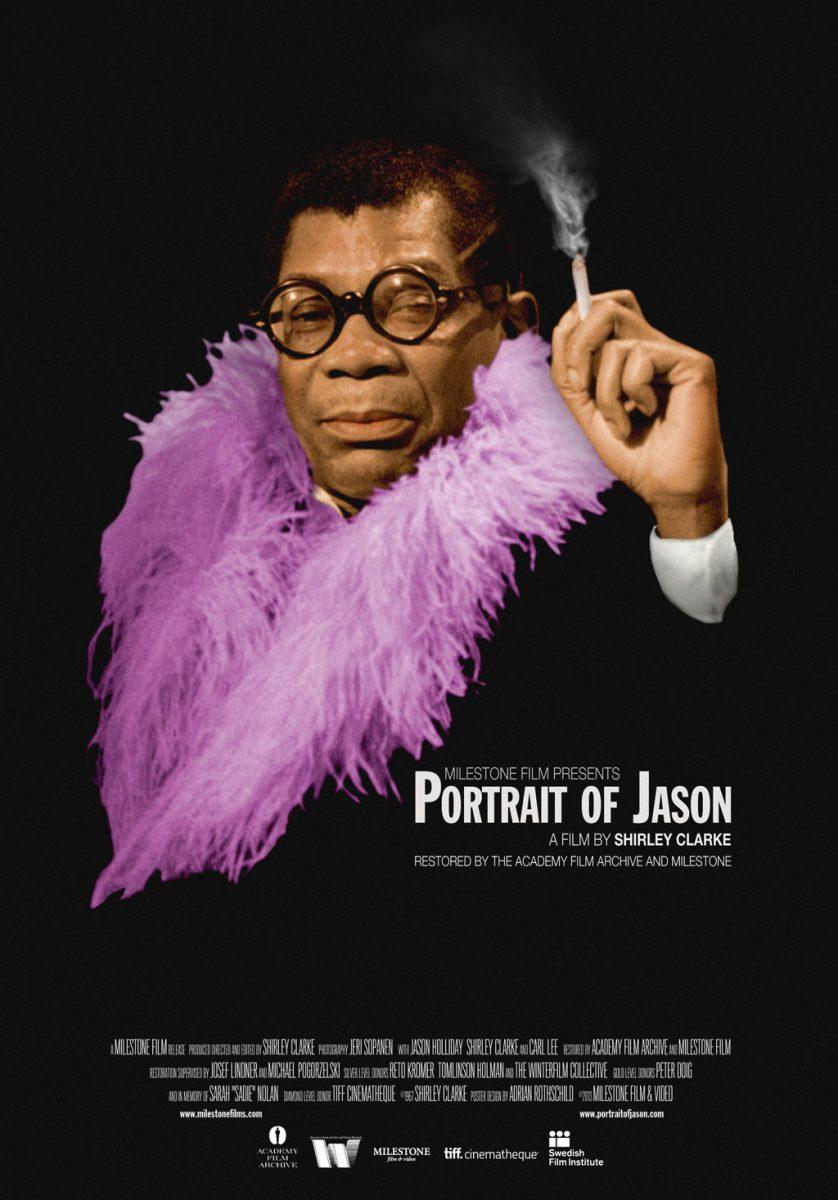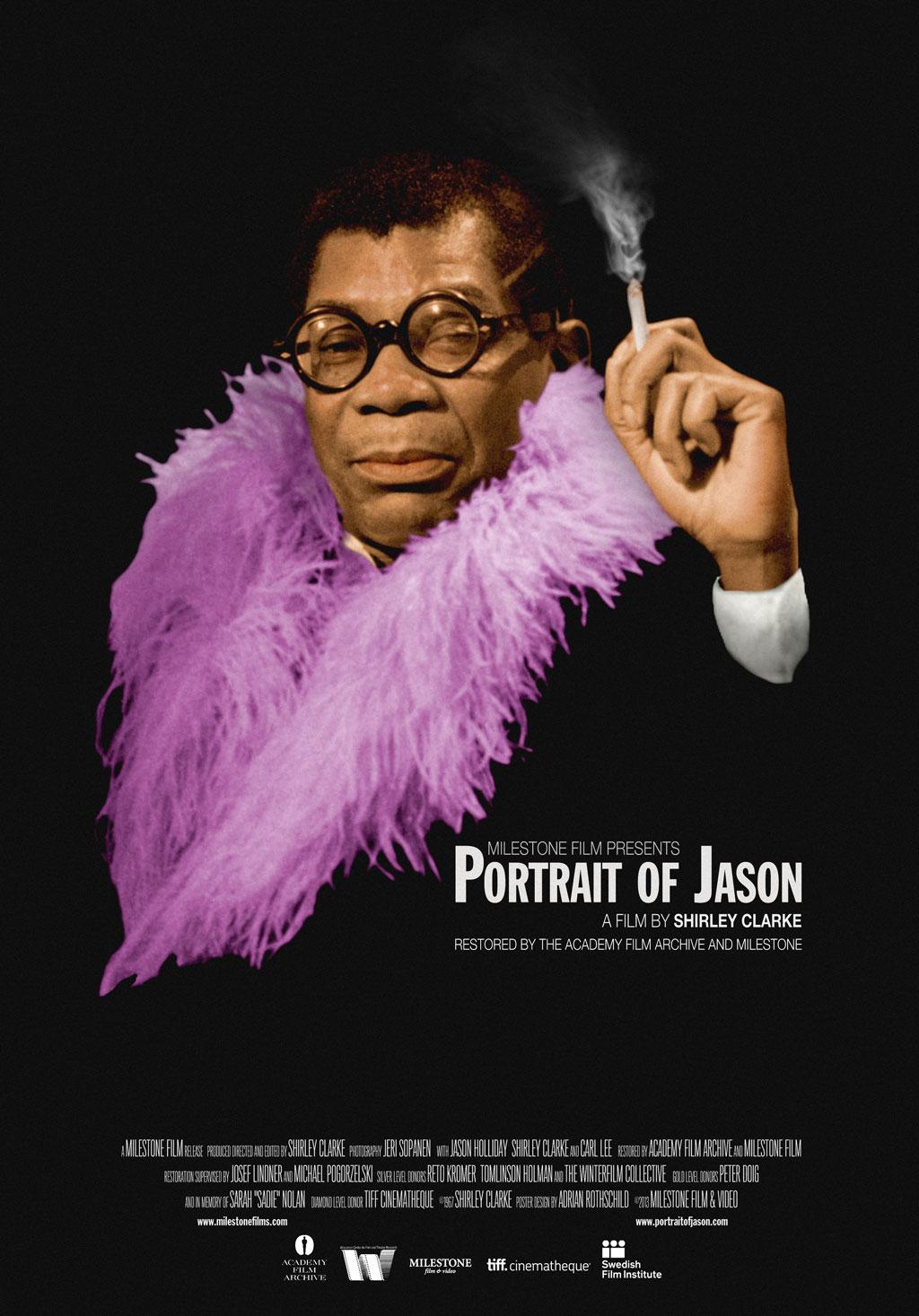This September the Sonoma Film Institute will be showing a restored version of Shirley Clarke’s LGBT film, “Portrait of Jason.”
The film is 90 minutes long, telling the story of a homosexual African American male prostitute named Jason Holliday.
This unique movie was filmed entirely in a single 12-hour period where Clarke filmed the entire movie in her own apartment at the Chelsea hotel.
Milestone Films, a company that rereleases older films, started a project called “Project Shirley.”
The 35-year-old film print was given to Dennis Doros and Amy Heller, founders of Milestone Films, by Clarke’s daughter, the famous artist Wendy Clarke.
The goal of “Project Shirley” is to rerelease Clarke’s films and to give them the appreciation that they have lacked but always deserved.
“Portrait of Jason” is said to be one of the most respected LGBT films of all time.
According to the “Project Shirley” website, Clarke made films that were meant to unsettle and stir emotions in her audience; Milestone was shocked to know what little recognition this great director has had.
“Milestone’s ‘Project Shirley’ is intended to right this historical oversight by presenting many of Clarke’s best films in beautifully restored versions,” said “Project Shirley” website representatives.
Clarke lived in New York working as a dancer and filmmaker working often with male actors.
Clarke had always enjoyed directing films like “Portrait of Jason” that were out of the social norm because she herself felt out of place in her own life.
“For years I’d felt like an outsider, so I identified with the problems of minority groups. I thought it was more important to be some kind of goddamned junkie who felt alienated rather than to say I am an alienated woman who doesn’t feel part of the world and who wants in,” said Clarke in 1976.
In the film, Clarke does not try to protect the audience from any shocking or painful aspects of Holliday’s life.
She allows Holliday to be himself and wants his life to be open and raw to all who see it.
Holliday tells his life story of what it was like to be a black homosexual in the ‘60s and shares his life-long aspirations of being a performer.
“At a time of civil strife and riots in the streets, at a time when it was literally illegal to be gay and people were being arrested, Shirley Clarke decided to make a movie about a person on the fringes of society that entertained, shocked and made the audiences think about their own lives and what was happening in America,” said Doros.
In the film Holliday goes into detail about his life of being a hustler; while he was younger, Holliday would do the drug runs and even participated in orgies.
Holliday speaks about his time as a houseboy and about past jobs working in bars.
He even talks about his brief time spent in college before he dropped out.
Holding nothing back, Holliday voices openly how he became a heroin addict.
Throughout his life, this man wanted nothing more than to be a nightclub performer and in this portrait film he expresses the hardships he endured to pursue his dreams.
According to a synopsis on the New York Times, while mainstream critics expressed nausea and disgust over “Portrait of Jason”, others considered it to be one of the most fascinating films they’ve ever seen.
Although Clarke pasted away at age 77 in 1997, her legacy lives on in her films and she remains highly respected by the LGBT community.
Clarke’s film is guaranteed to be a cinematic experience like none ever before.
Those who are interested should go to Ives Hall Friday, Sept. 6 at 7 p.m. or Sunday, Sept. 8 at 4 p.m. Standard admission tickets are $7.
Non-SSU students with I.D., SSU staff and faculty and senior citizen tickets are $6. SFI members’ tickets and children 12 and under are $5 and SSU students with campus I.D. have access to free tickets.
For viewers looking to get a sneak peak visit the Sonoma Film Institute website for trailers and details.





![[Both photos courtesy of sonoma.edu]
Ming-Ting Mike Lee stepped in as the new SSU president following Sakakis resignation in July 2022](https://sonomastatestar.com/wp-content/uploads/2024/04/CC4520AB-22A7-41B2-9F6F-2A2D5F76A28C-1200x1200.jpeg)



























